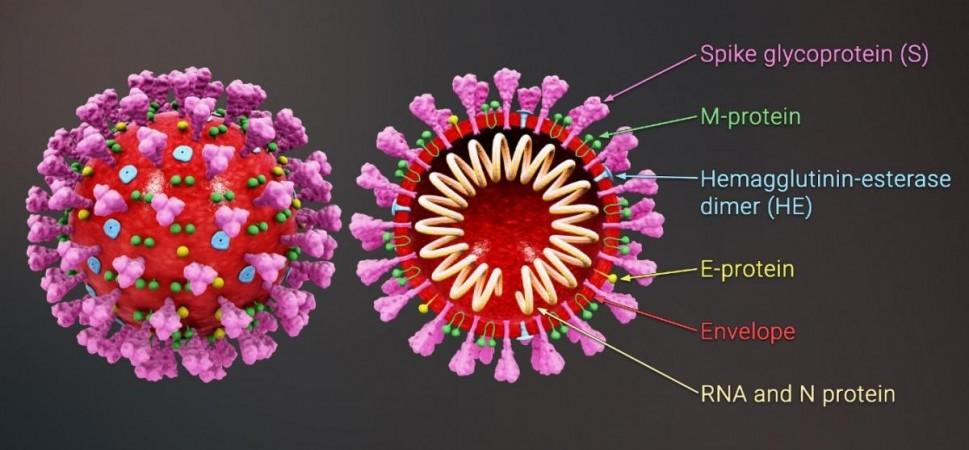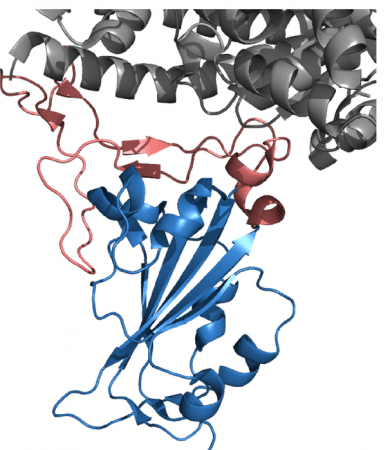The COVID-19 pandemic has brought attention to the increasing threat of zootonic viruses crossing over to human beings. Other than the SARS-CoV-2 virus, coronaviruses such as SARS-CoV-1 and MERS-CoV have also emerged in recent times. Therefore, the need for a vaccine that can help tackle multiple coronaviruses is paramount. Now, scientists have developed a new vaccination strategy that can neutralize not just the SARS-CoV-2 virus but also a broad range of other coronaviruses.
In a new multi-institutional study, researchers from Japan have reported the devising of a new vaccination strategy that promotes the production of antibodies that can block multiple coronaviruses. Using an animal model, the team demonstrated that engineered spike proteins of the SARS-CoV-2 virus could neutralize four other coronaviruses as well. The findings were published in the Journal of Experimental Medicine.
"Our data suggest that engineered versions of the spike receptor-binding domain could be a useful component for the development of broadly protective, next-generation vaccines to prevent future coronavirus pandemics," said Dr. Tomohiro Kurosaki, corresponding author of the study, in a statement.
Limited By Region of Spike

It is now common knowledge that the SARS-CoV-2 virus gains entry into human cells using its 'spike' or 'S-protein'. The spike is a hook-like structure found on the surface of the coronavirus. It binds with an enzyme known as ACE2 (Angiotensin-converting enzyme 2) receptor present on the surface of several cell lines.
The area of the spike where the binding with the ACE2 takes place is known as RBD (receptor-binding domain). It comprises of two parts: the 'core' region (which is quite similar across coronaviruses, and the 'head' that is more specialized and mediates binding with ACE2.
Antibodies that discern the head region of the RBD can prevent the entry of SARS-CoV-2 into cells. However, they provide little protection against other coronaviruses such as the SARS-CoV-1 that causes severe acute respiratory syndrome (SARS). On the other hand, antibodies that identify the core region of the RBD can block the entry of several coronaviruses into human cells.

However, those exposed to the viral spike protein of SARS-CoV-2 produce large quantities of antibodies against the head region but very few that can detect the core region. "This suggests that, although the generation of broadly neutralizing antibodies is possible, SARS-CoV-2 infection and current vaccines are unlikely to provide protection against the emergence of novel SARS-related viruses," explained Dr. Kurosaki.
Neutralizing Multiple Viruses
In order to overcome this hurdle, the team worked on devising a new vaccination strategy that may aid the immune system in producing antibodies that are broadly neutralizing. The RBD of the SARS-CoV-2 virus' spike was genetically modified by the authors. This covered the head region with additional sugar molecules known as glycans. These molecules were able to guard the head region against the immune system and amplify the production of antibodies that targeted the unguarded core region of the RBD.
Next, the scientist turned to a mice model to test the effectiveness of the strategy. The animals were inoculated with the engineered SARS-CoV-2 spike protein. It was found that the immunized mice indeed produced a significantly larger proportion of antibodies that recognized the core region of the spike RBD. Not only did the engineered molecules neutralize the SARS-CoV-2 virus but also SARS-CoV-1 and three SARS-like coronaviruses from pangolins and bats.

The authors admitted that there is much work to be done for the translation of these results in human beings. However, the approach devised in the study provides hope at a time when the animal-to-human jump of viruses has begun posing an increasing risk. The strategy could enable the development of a next-generation vaccine that may help prevent future coronavirus pandemics.
"Given that prior coronavirus epidemics such as SARS-CoV-1 and MERS-CoV have occurred due to zoonotic coronaviruses crossing the species barrier, the potential for the emergence of similar viruses in the future poses a significant threat to global public health, even in the face of effective vaccines for current viruses," concluded Dr. Kurosaki.

















